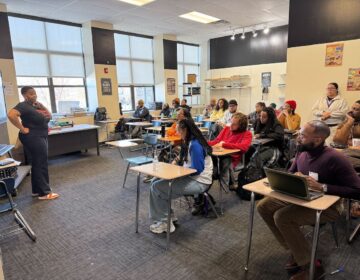Dirty deeds: House-stealing scam common in Philly
-
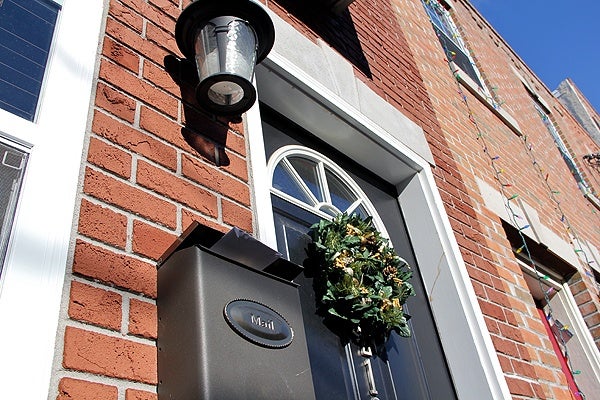
An outgoing letter in the mailbox and a Christmas wreath indicate that this home on Kimball Street is currently occupied. Investigators say it was stolen. (Emma Lee/for NewsWorks)
-
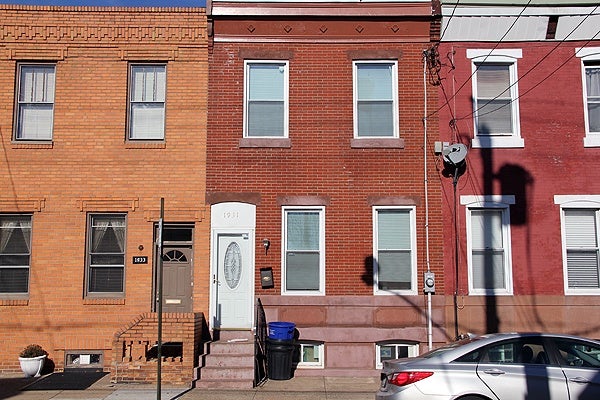
Investigators say this home on Dickinson Street was stolen when it was uninhabited. (Emma Lee/for NewsWorks)
-

This home on Dorrance Street is falling apart, marred by graffiti, and covered in vines. Investigators say it was one of 22 that were stolen. (Emma Lee/for NewsWorks)
-
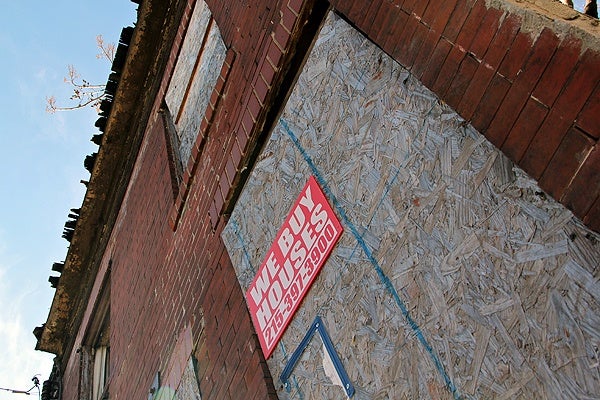
This crumbling home at 1428 S. Colorado street is one of 22 investigators say were stolen by men who forged the deeds. (Emma Lee/for NewsWorks)
-
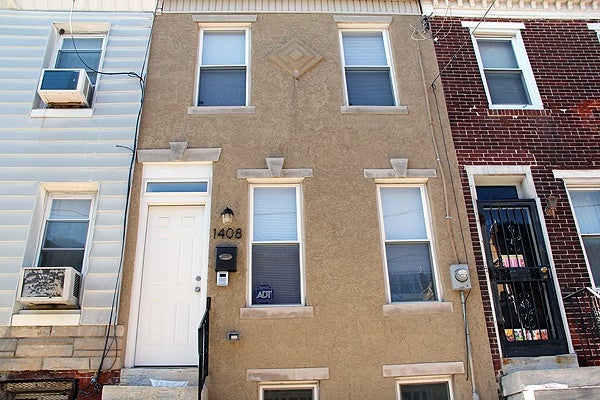
This home on South Chadwick Street appears to be recently renovated and currently occupied. Investigators say it was stolen. (Emma Lee/for NewsWorks)
-
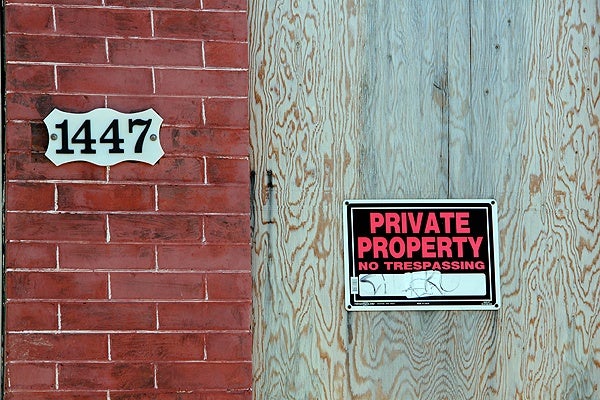
Private property, but whose? Investigators say this boarded up row home on Bancroft Street was one of 22 city properties stolen by men who forged the deeds. (Emma Lee/for NewsWorks)
-
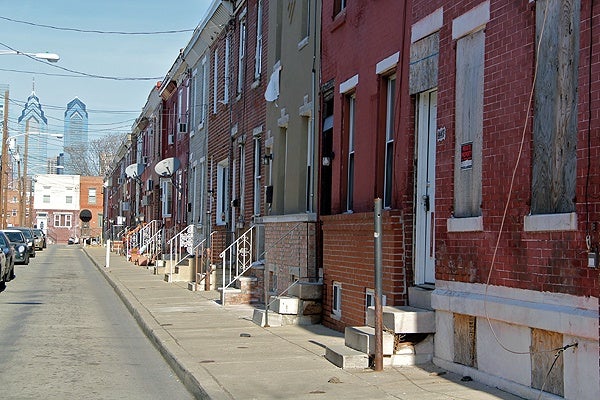
This boarded up home at 1447 Bancroft Street interrupts a row of immaculately maintained houses. Investigators say it was stolen. (Emma Lee/for NewsWorks)
-
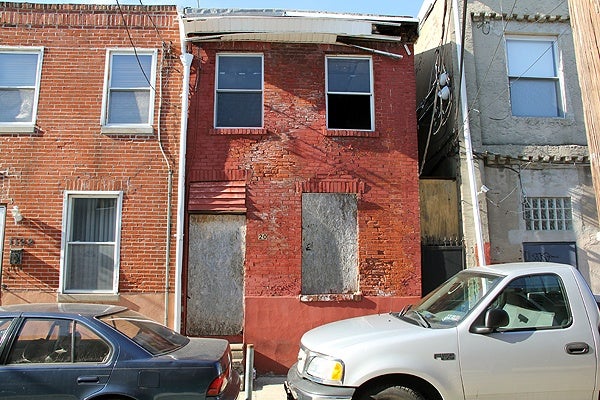
Investigators say this crumbling row home at 1120 Clifton Street was stolen by men who forged the deed. "Why would you steal that," wondered a passing pedestrian. "What would you do with it?"
Earlier this week, four men were charged with fraud in the thefts of more than a dozen homes in Philadelphia. As many ususpecting owner and buyers are finding out, the practice is commonplace.
Stealing homes in Philadelphia doesn’t require a massive crane and a flatbed truck, just a notary stamp and a hard heart. Assistant District Attorney Yvonne Ruiz of the economic and cybercrime unit says the thieves’ favorite targets are abandoned houses in neighborhoods where a quick profit can be made.
“What usually happens is that these people go around in neighborhoods, and you can see houses that appear to be abandoned and unattended. They go around and they go around and think this may be a good place we’ll be able to steal,” she said. “They’ll approach an innocent buyer and say we have this property.”
Ruiz says, at that point, they have to find a way to generate a notarized deed transfer to sell the home.
“In a lot of instances what we see are forged notaries. They are either able to get the stamp and duplicate it and that’s how they get it notarized,” Ruiz said. “Or they know a notary from the neighborhood.”
Once the change is recorded, it becomes difficult to reverse.
After he gutted the Port Richmond rental home he owned, retired Philadelphia police officer Ron Clemins returned to the property to begin renovations and found it had been stolen.
“I found it was completely redone over and occupied by a family,” said Clemins.
When Clemins went to check what happened, he was shocked that his home had been transferred not just once.
“It had been flipped three different times to three different owners,” he said.
Clemins says he never got his home back. He eventually made a settlement, which he says was just a seventh of the home’s value.
New law helps, but doesn’t halt crimes
Councilman Bill Greenlee, who says the practice happens too often in Philadelphia, sponsored a measure mandating that before a title is changed the listed owner receive must written notification about the transfer. Greenlee says the new law slowed down the thefts, but has not stopped them.
“Once that deed is accepted, in order to get that property back, we found it takes at least a year to get that property back,” he said. “That’s optimistically, it may take a lot longer.
“Once those properties are stolen, they are sold to an innocent victim, so you have two victims. You have the person whose house was stolen and then you have the person who thinks that they got a free and clear property,” Greenlee said.
Greenlee says making sure you have title insurance is important when purchasing any Philadelphia property, just in case you’re buying something that’s tangled up in fraud.
WHYY is your source for fact-based, in-depth journalism and information. As a nonprofit organization, we rely on financial support from readers like you. Please give today.




